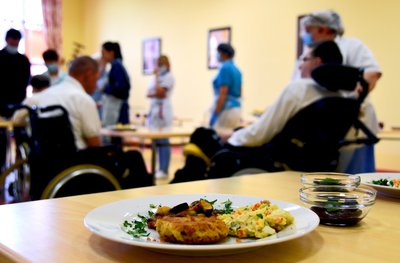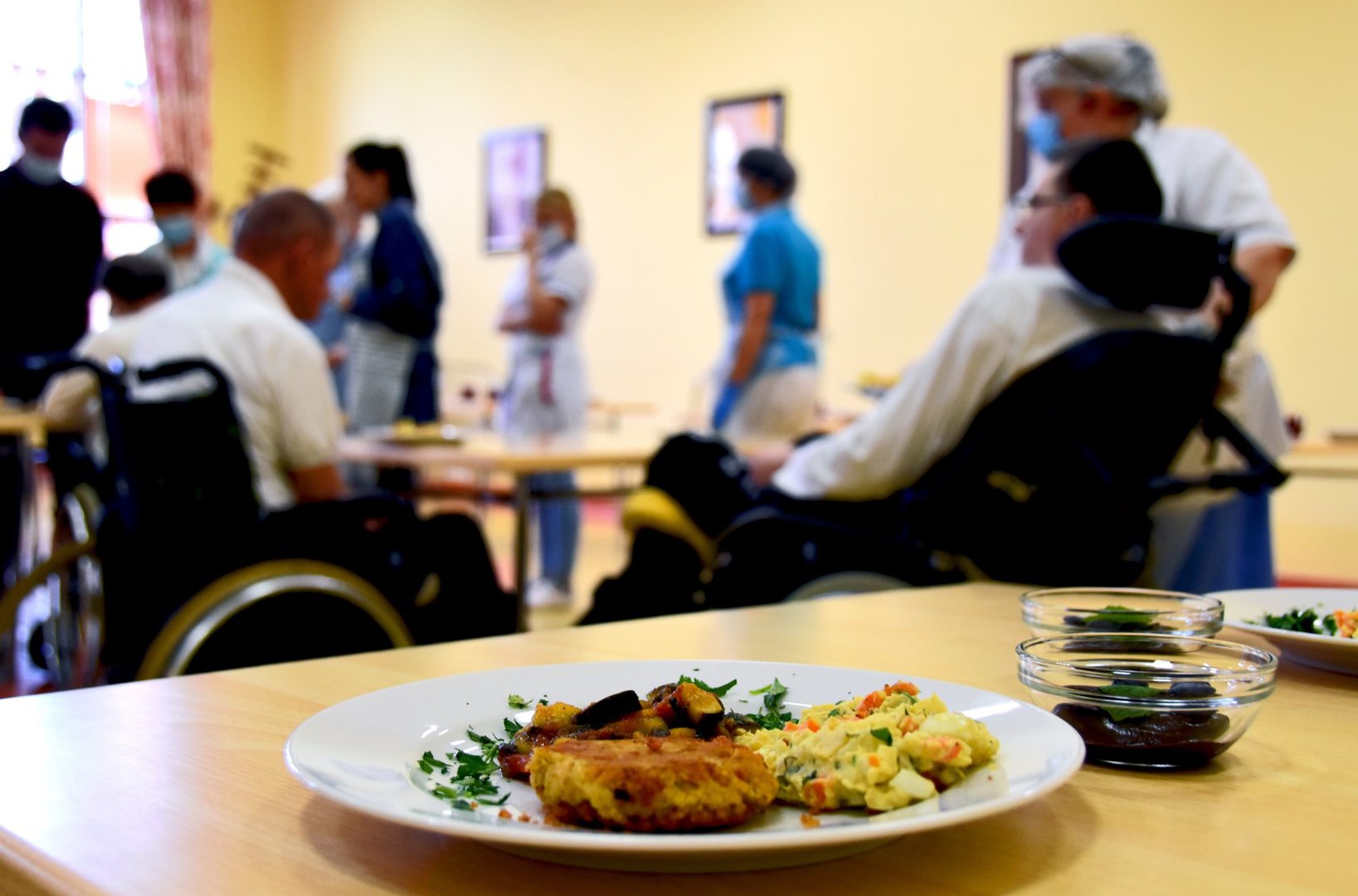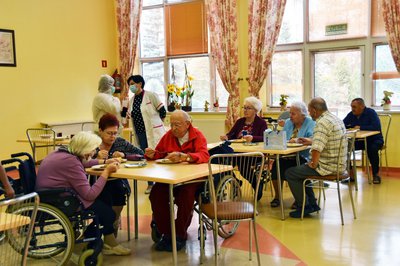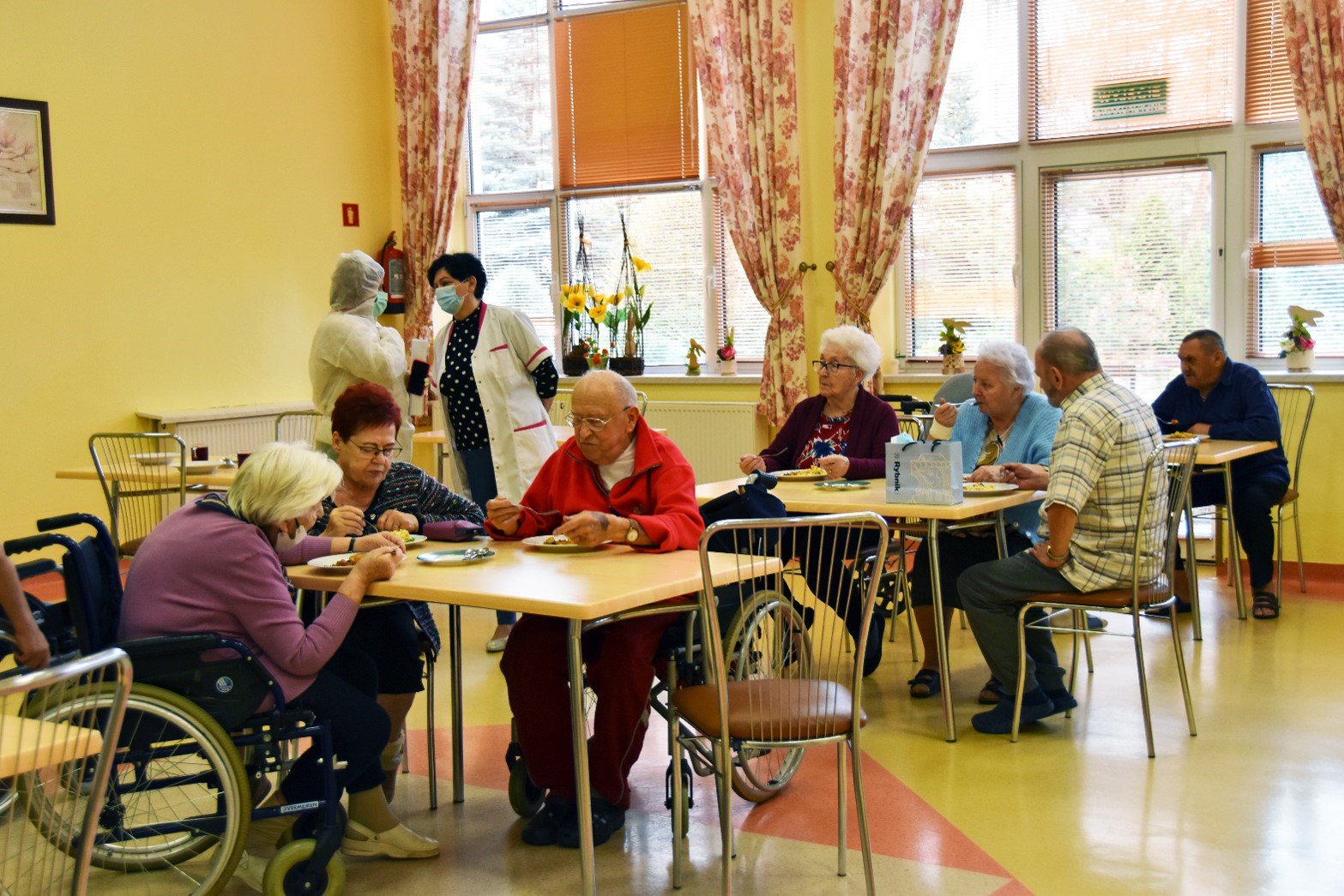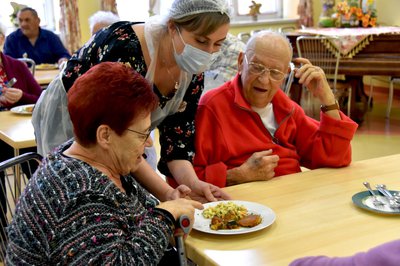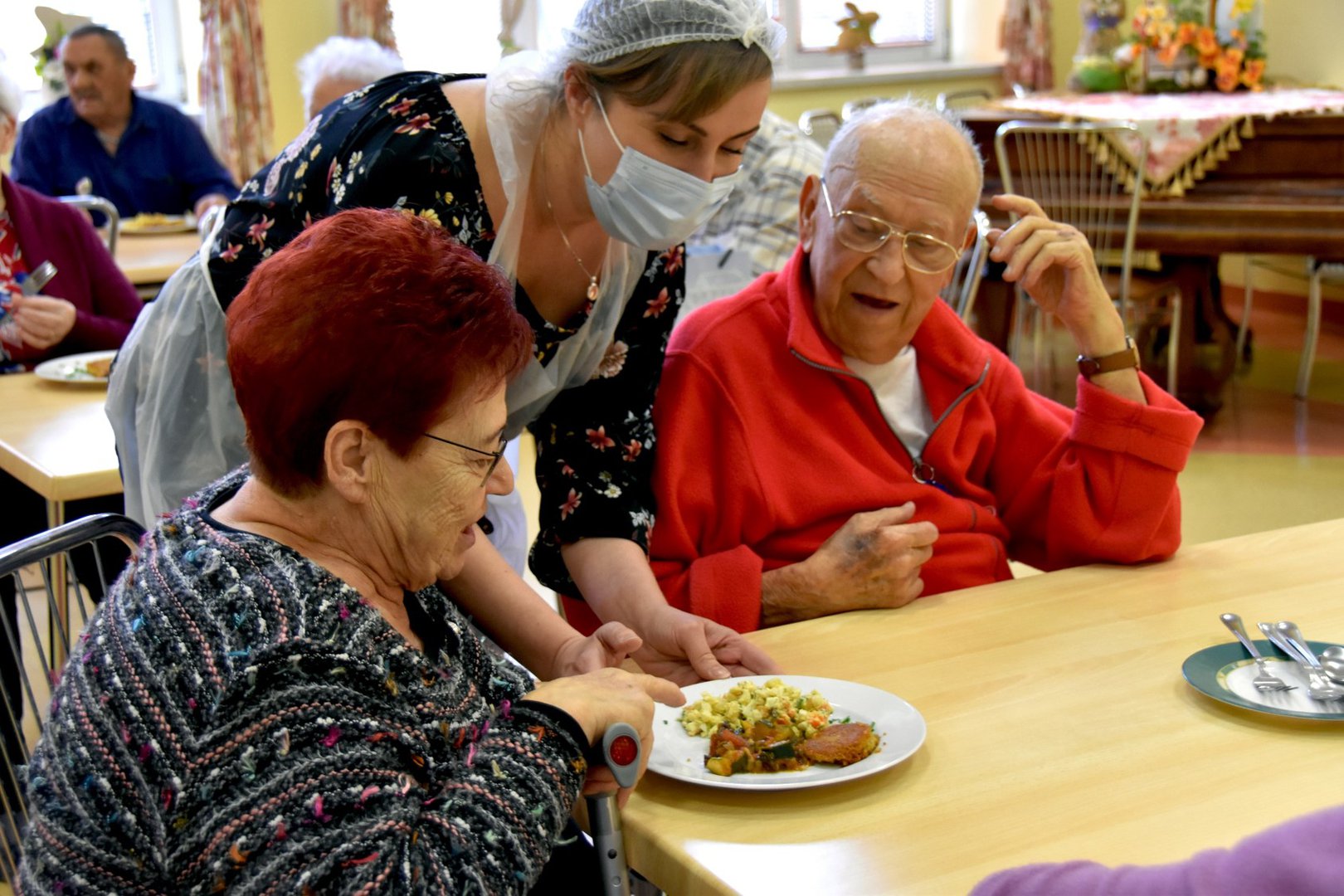Nödvändiga steg
- Provide training for kitchen professionals in the techniques of introducing plant-based meals to the everyday menu of senior citizens, led or supported by dietitians. Include information about the health, economic and environmental benefits of these changes: e.g. reducing meat and using lentils can be cost efficient, tasty, and a healthy alternative to traditional heavy dishes; organic and seasonal fruits can become effortless and flavourful dessert; breakfast can become a healthy and colourful meal with legume paste, yoghurt parfait or egg salad; favourite sweets can be modified into a source of protein (bean cookies).
- Conduct a survey among the residents about their meal preferences, including questions on plant-based meals. The results will provide a first insight into the possibilities and challenges of the transformation.
- Prepare a questionnaire to gather feedback on the tastings.
- Arrange regular tasting sessions for new meals such as legume burgers, oven-baked veggies, meals based on diverse groats, spinach cake, and bean cookies for seniors and gather feedback in a short questionnaire.
- Analyse the results.
- Gradually, but enthusiastically, introduce the new plant-based dishes based on the preferences of the residents.
- In parallel, organise presentations about sustainable food and the health aspects of plant-based food for the residents.
Att tänka på
- By letting the residents participate in the process, they feel more involved in the new menu composition, more aware of the reasons behind it, and therefore more tolerant and open to changes.
- Professionals who cook and serve food are crucial actors in this process, and it is very important that they believe in this action for change and are able to pass on their enthusiasm for the new dishes to the residents.
- It is practical to start introducing plant-based products gradually (e.g. start preparing meatballs with part meat and part legumes).
- It is effective to take traditional dishes and transform them into plant-based meals.
- Cooking with seasonal produce is usually preferable.
- Analysing food preferences provides a good basis for introducing other dietary changes, like introducing more organic products (Organic Food).

